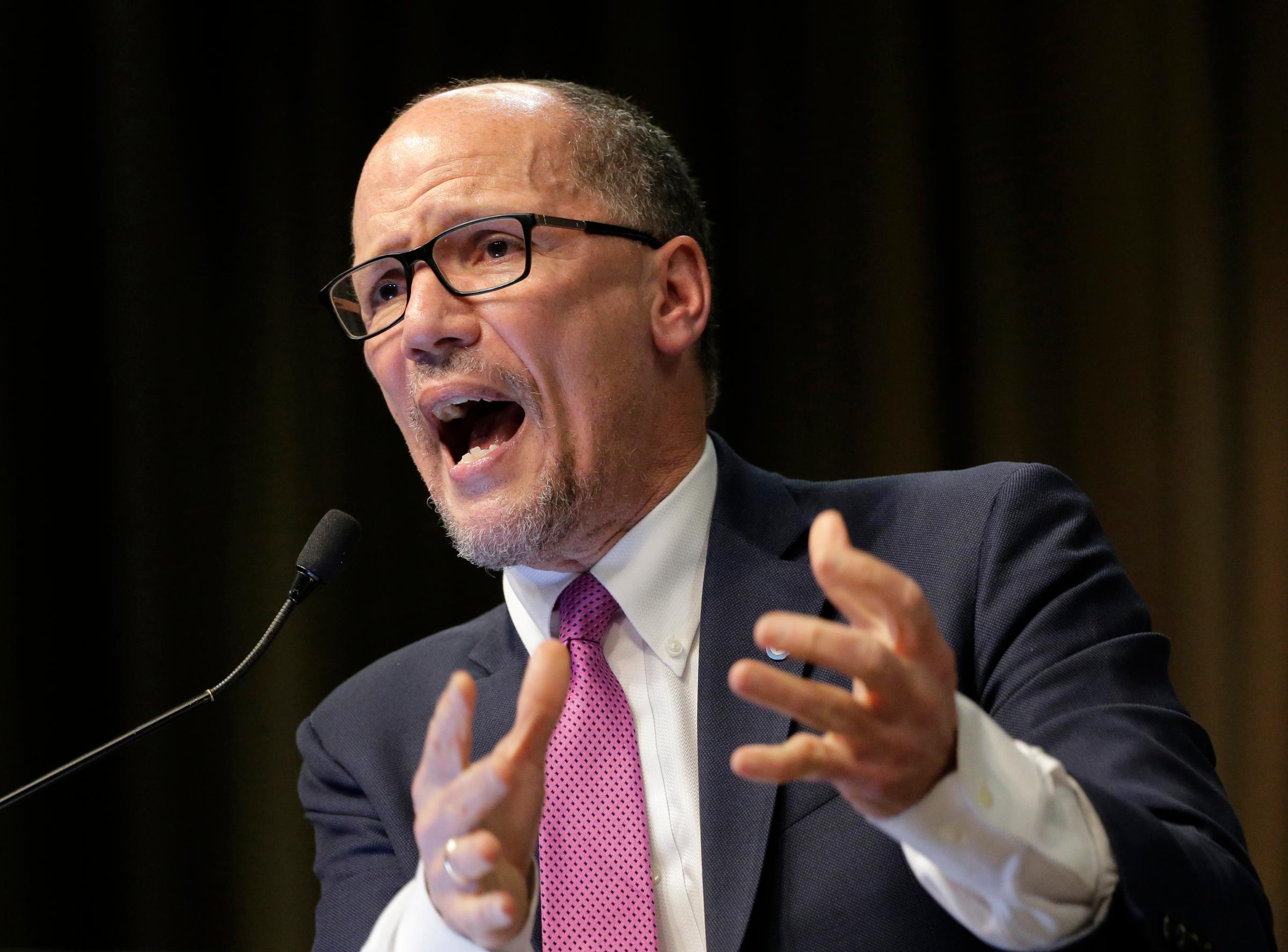Democrats and Republicans had opposing problems when they held their presidential primary debates in 2016.
For Democrats, the perception that the party Establishment favored Hillary Clinton fueled criticism about the format and timing of the debates. On the GOP side, a crowded field of candidates made debates unwieldy, while attempts to break them up just spurred resentment.
Now, as they attempt to deal with a historically large field in the 2020 primary, Democrats are trying to avoid those same missteps — a goal that has proven elusive as more candidates have announced.
The Democratic National Committee announced on Wednesday that to qualify for the debate stage in September, candidates would have to meet minimum polling and donor thresholds that are twice as high as the minimums to qualify in June and July.
Christina Bellantoni, director of the media center at the USC Annenberg School for Communications and Journalism, noted that Democrats can design the debates however they want.
“The parties have their own prerogative,” she said.
But that freedom also means Democrats are on the hook to find a way to hold the debates without angering the grassroots voters that they will need in the general election.
The initial solution was to set a neutral goal for candidates to show support either in the polls or through contributions.
In February, the DNC stated that in order to qualify for the first debates, candidates would need to put up 1% showings in three polls or receive 65,000 unique donations. But meeting one of these thresholds does not guarantee a spot: to avoid overcrowding, the DNC has capped the roster at 20 candidates.

The 2016 Republican primary was similarly crowded, and the RNC’s solution was to direct the overflow into an undercard debate.
Although former Hewlett-Packard CEO Carly Fiorina’s standout performance in the secondary event vaulted her into a primetime slot for the next round, others at the undercard debate described it as a “kids’ table” that cast them as runners-up.
An aide to one of the undercard 2016 Republican candidates told Politico at the time that “the party was putting its thumb on the scale” by staging the undercard debate in an empty arena, hurting the reputations of lesser-known candidates.
To avoid the criticisms leveled at the RNC in 2016, the DNC’s first two debates will divide the top 20 candidates randomly across two nights, both in primetime.
The DNC is also working hard to avoid any appearance of favoritism due to its own experiences in 2016. At one point in the primary debates, Vermont Sen. Bernie Sanders alleged that one debate had been scheduled over a holiday weekend to minimize viewership, while emails released by WikiLeaks showed that a CNN contributor leaked a debate question to the Clinton campaign.
Still, debate experts said that could cause its own problems, with potential rivals such as former Vice President Joe Biden and Sanders, currently in the top spots in most polls, appearing on different nights.
Additionally, even with the split across two nights, the debates may be too large to be substantive. “With 10 people on a stage, you can’t really do much that’s meaningful,” says Grant Reeher, director of the Campbell Public Affairs Institute and a professor of political science at Syracuse University’s Maxwell School of Citizenship and Public Affairs. “They may end up competing with each other on … who has the best zinger.”
On the other hand, Reeher says, restricting the debate stage too extensively is also not ideal because it creates “a self-fulfilling prophecy” in which dark horse candidates never get the chance to emerge.
Colorado Sen. Michael Bennet, who has not qualified for the first round, told Fox News on Tuesday that he doesn’t think the Democratic National Committee should be winnowing the field early in the process.” Ohio Rep. Tim Ryan, who has met the polling but not the donor requirement, made a similar argument, saying that “winnowing the field this early in the process” could hurt candidates “because you need a chance for the American people to see you.”
Still, Bellantoni stressed that missing a debate isn’t necessarily the end of the world.
“I have no doubt that whatever candidate doesn’t make this third debate, they will be doing an Instagram rebuttal, or they will have some sort of event to try to generate attention,” she said.
Indeed, Donald Trump skipped a Republican debate in 2016, and instead held a fundraiser for veterans, which ended up getting more attention after he failed to quickly make the promised donation.
More Must-Reads from TIME
- L.A. Fires Show Reality of 1.5°C of Warming
- Home Losses From L.A. Fires Hasten ‘An Uninsurable Future’
- The Women Refusing to Participate in Trump’s Economy
- Bad Bunny On Heartbreak and New Album
- How to Dress Warmly for Cold Weather
- We’re Lucky to Have Been Alive in the Age of David Lynch
- The Motivational Trick That Makes You Exercise Harder
- Column: No One Won The War in Gaza
Contact us at letters@time.com




